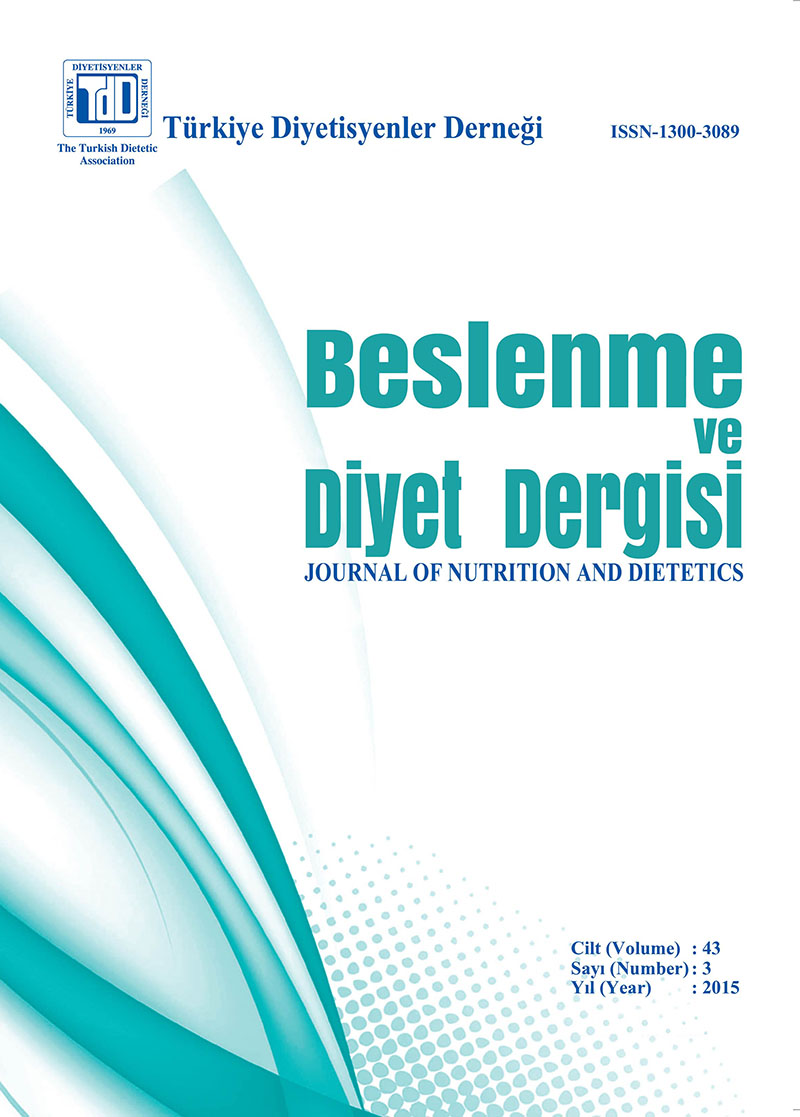Determination of Nutritional Habits of Furniture Manufacturing Workers in Kayseri
Keywords:
Anthropometric measurements, nutrition status, workersAbstract
Aim: This study is conducted to determine the dietary habits and nutritional status of the workers working in furniture manufacturing in Kayseri. Subjects and Methods: A total of 258 individuals working in furniture manufacturing in Kayseri were included in the study. A general questionnaire was applied by a face to face interview to determine socio-demographic characteristics and nutritional habits. In addition, weight and height were measured, and Body Mass Index (BMI) was calculated. BMI was evaluated according to the World Health Organization (WHO) classification. SPSS 16.0 program was used for statistical analysis and data were presented with number, percentage (%) and Pearson chi-square test. Results: Of workers, 231 (89.5%) were men and 27 were women (10.5%). 82.2% of the workers were married, and 39.5% of them have a family of four subjects. The total income of family was in between 1000-1249 TL for 30.7% and it was less than 999 TL for 24.5% of the workers. 36.4% of worker families spend ≤%30.0 of their income for nutrition. The mean age (year), body weight (kg), height (m) and BMI (kg/m2) were 36.9±10.1 years, 79.1±11.3 kg, 174.0±6.6 kg/m2 , 25.9±3.7 kg/m2 for men and 32.8±6.8 years, 64.7±20.2 kg, 162.0±5.4 cm, 24.5±7.8 kg/m2 for women, respectively. According to the WHO classification, the percentage of thin, normal weight, overweight and obese workers were 1.1%, 44.6%, 41.9% and 12.4%, respectively. It was found that 77.1% of the workers had 3 main meals, 19.4% skipped breakfast, and 68.6% never had snacks. Conclusion: As a result of the study, it was determined that majority of the workers were overweight and obese. This can be explained with the fact that the workers have unhealthy/unbalanced eating habits since their food budget is restricted. This result revealed the necessity of training worker families on healthy nutrition.

